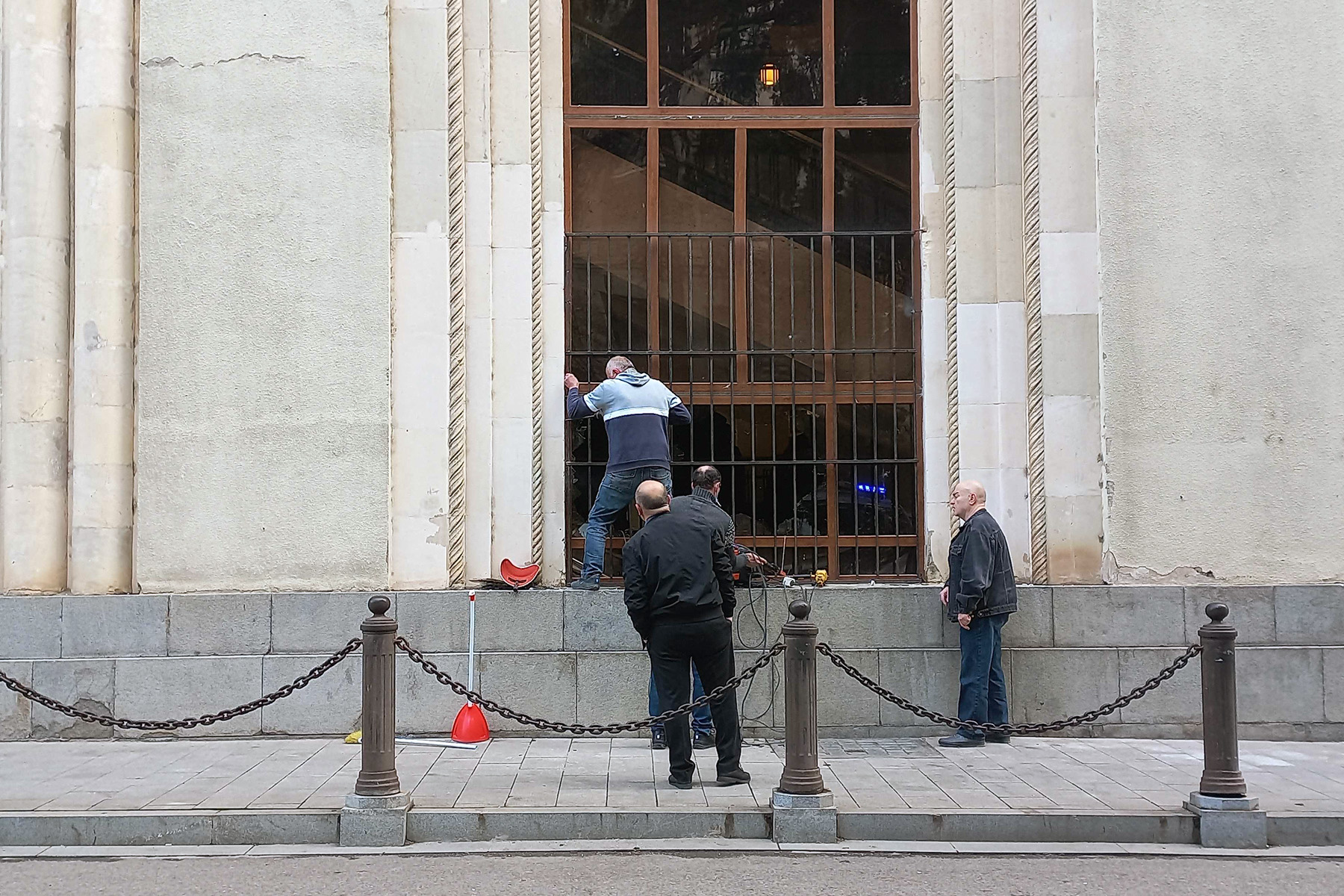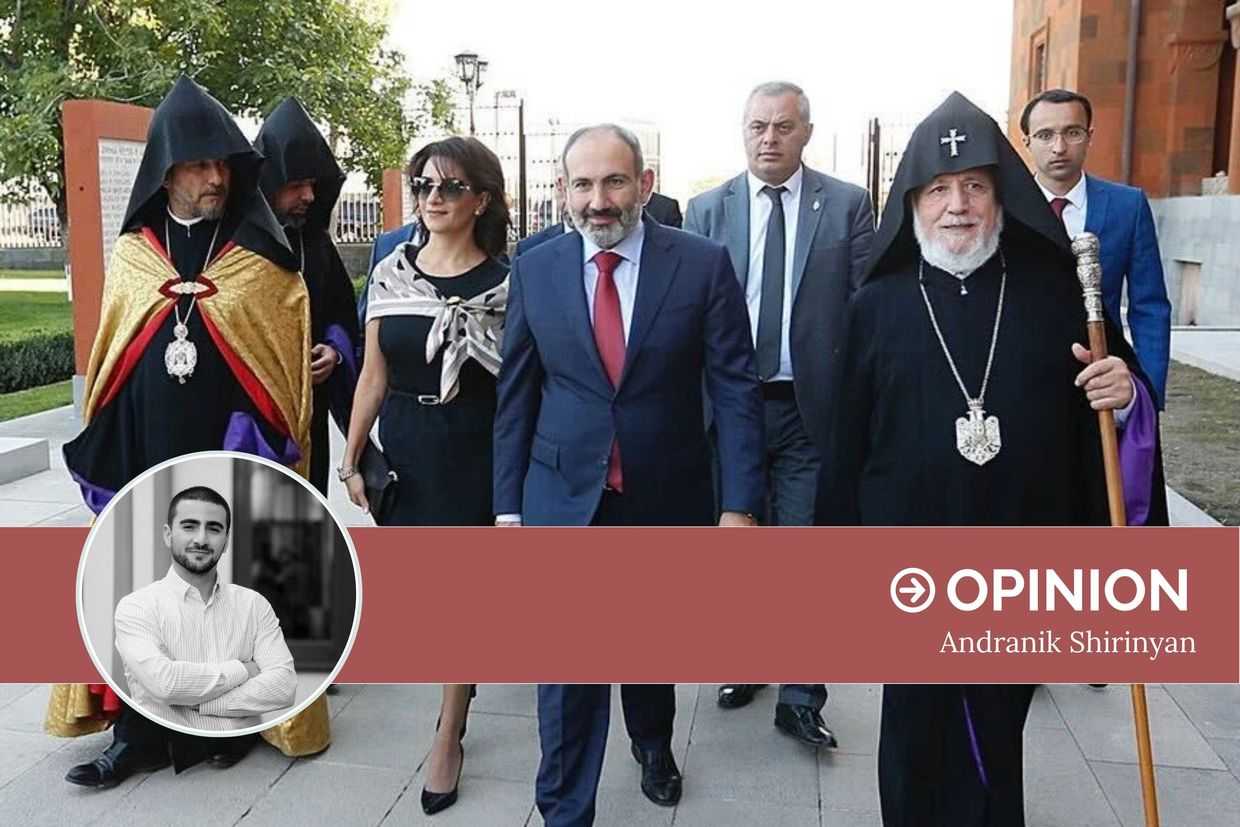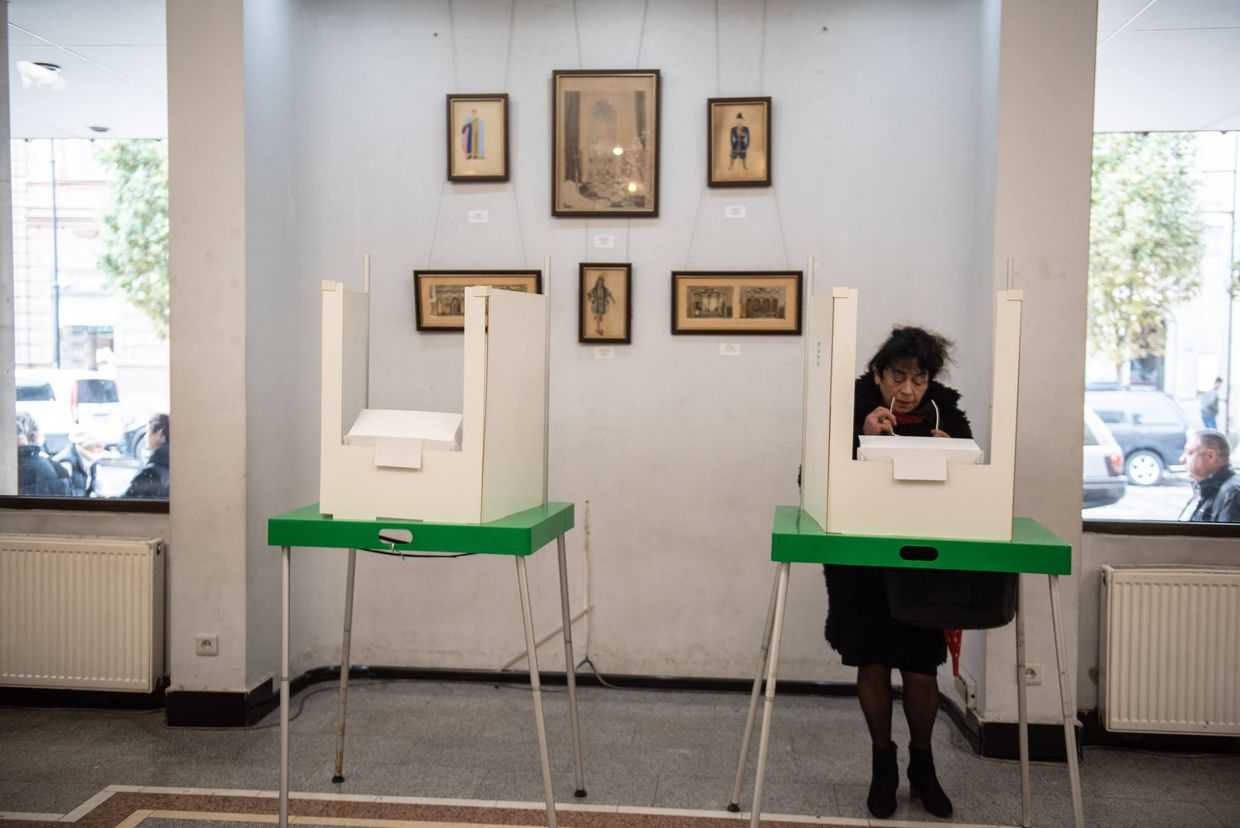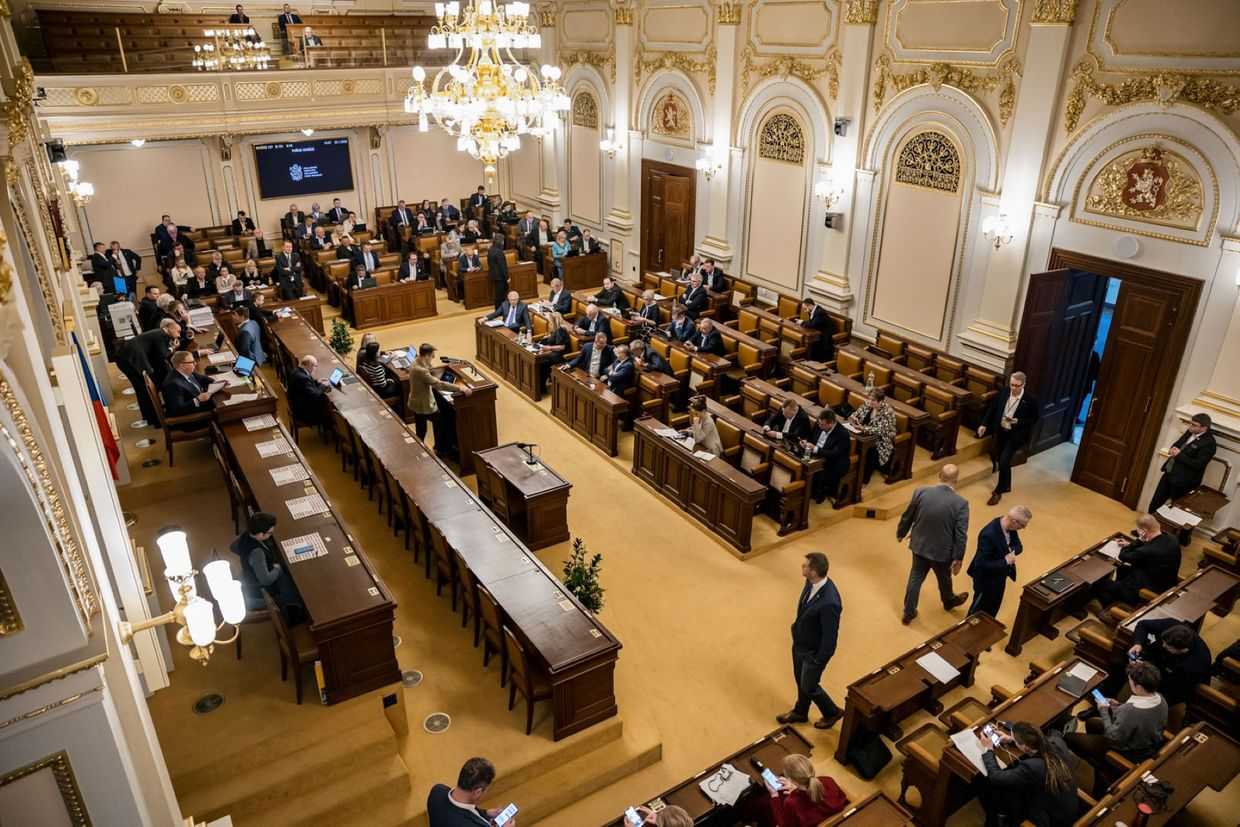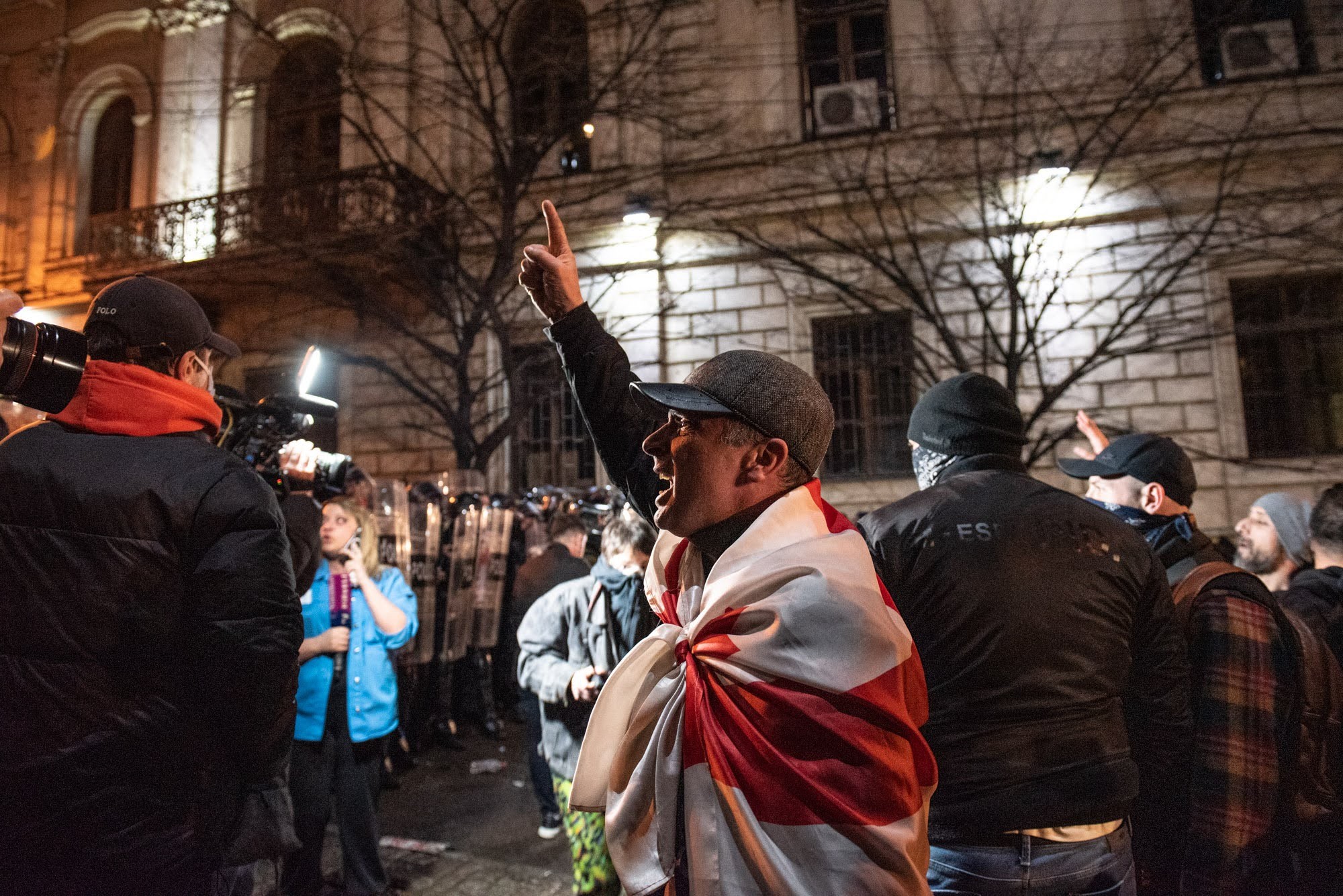
The Georgian Government has vowed to drop the foreign agent law following a second night of massive protests in Tbilisi.
On Thursday evening, the parliament scheduled an extraordinary session for Friday noon to vote on withdrawing the foreign agent law.
Georgian Dream announced that it would ‘unconditionally’ drop the draft law early on Thursday morning, just hours after protesters went home.
The statement was made jointly with People’s Power, the group of anti-Western MPs affiliated with the ruling party who submitted the bill to parliament.
‘As the emotional background subsides, we will better explain to the public what the bill was for and why it was important to ensure transparency of foreign influence in our country’, the statement reads.
‘To do this, we will start meetings with people and let the general public know the truth about each and every detail of the matter’.
According to the statement, the bill was ‘given the false label of the Russian law’, and ‘radical forces were able to involve some of the youth in illegal activities’.
An alternative version of the bill — which the parliamentary majority dubbed an exact copy of the American Foreign Agents Registration Act — was dropped and is no longer on the parliament’s website.
The bills would have required civil society groups and media organisations who receive over 20% of their funding from abroad to register as ‘agents of foreign influence’ and to submit to monitoring by the Ministry of Justice. Failure to comply would have meant large fines or prison time. The bills was similar to a foreign agent law signed into law by Vladimir Putin in 2012, which has since been used to crush civil society in Russia.
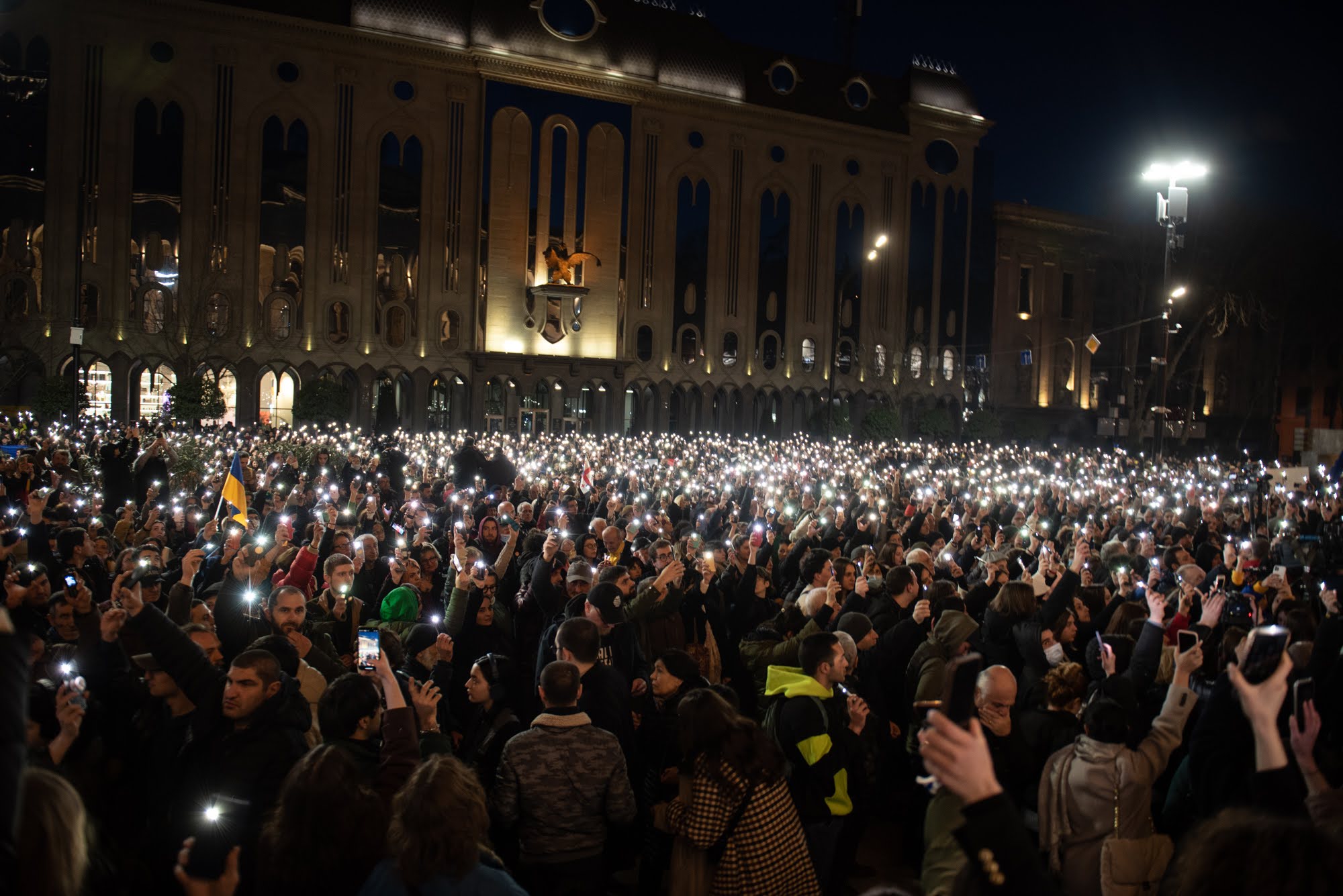
Mamuka Mdinaradze, the chair of the Georgian Dream faction in parliament, dismissed speculation that party’s declaration regarding the law was attempted to mislead people, describing it as a political decision that could not be revoked, as to do so would prompt a protest that was ‘ten times larger’.
Also on Thursday, Georgia’s Interior Ministry announced that 133 protesters detained in the past two days of protests have been released.
Both announcements came as thousands of people gathered in front of parliament on Thursday evening. They demanded the release of people arrested in the 7—8 March protests and ‘clarification’ from the ruling party on how the law will be withdrawn.
The decision comes as riot police failed for a second night to disperse massive protests against the draft law.
Tens of thousands of people gathered outside parliament on Wednesday evening. Despite the massive use of tear gas, water cannons, and sonic weapons by police, protesters continued to return to confront police until the early hours of the morning.
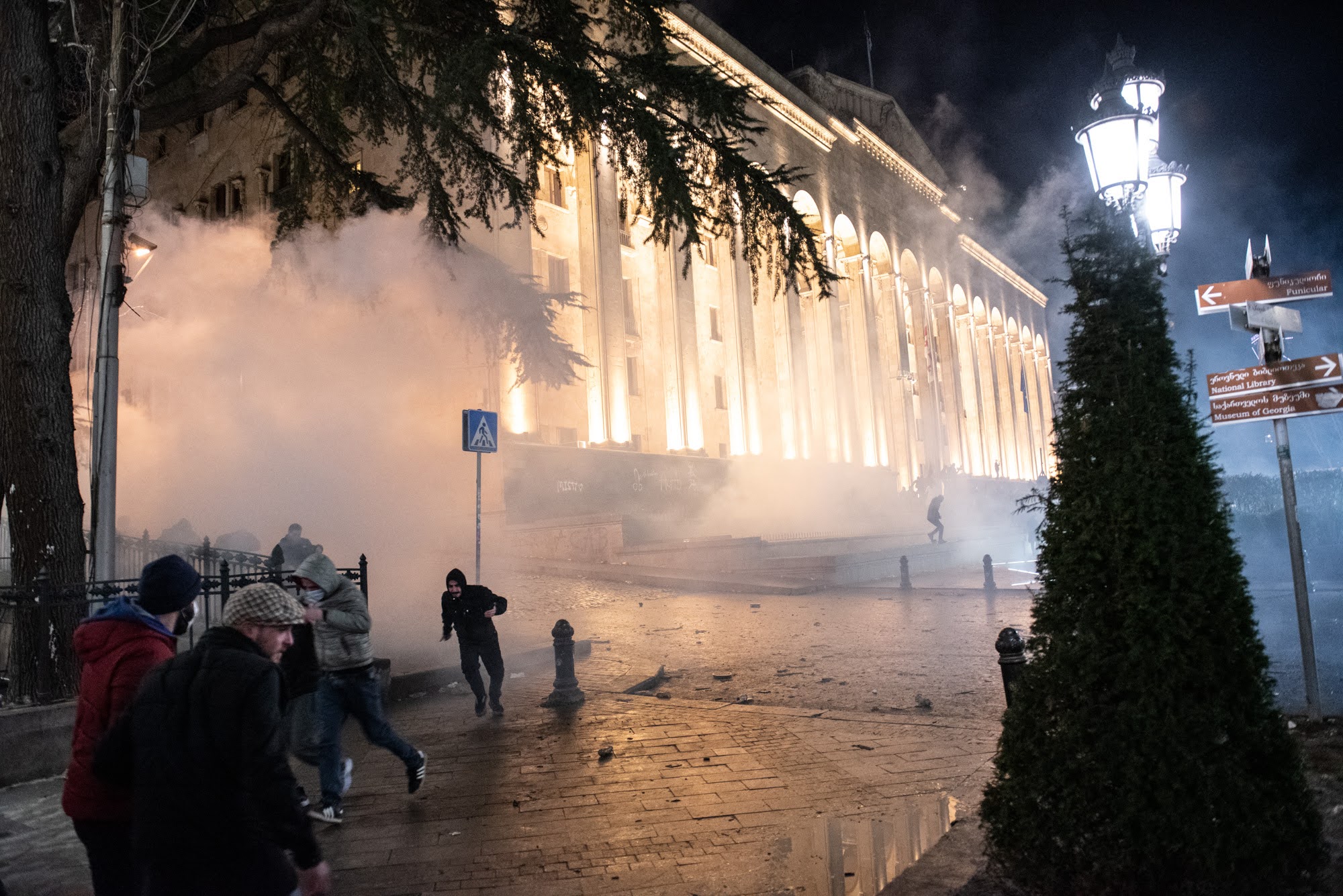
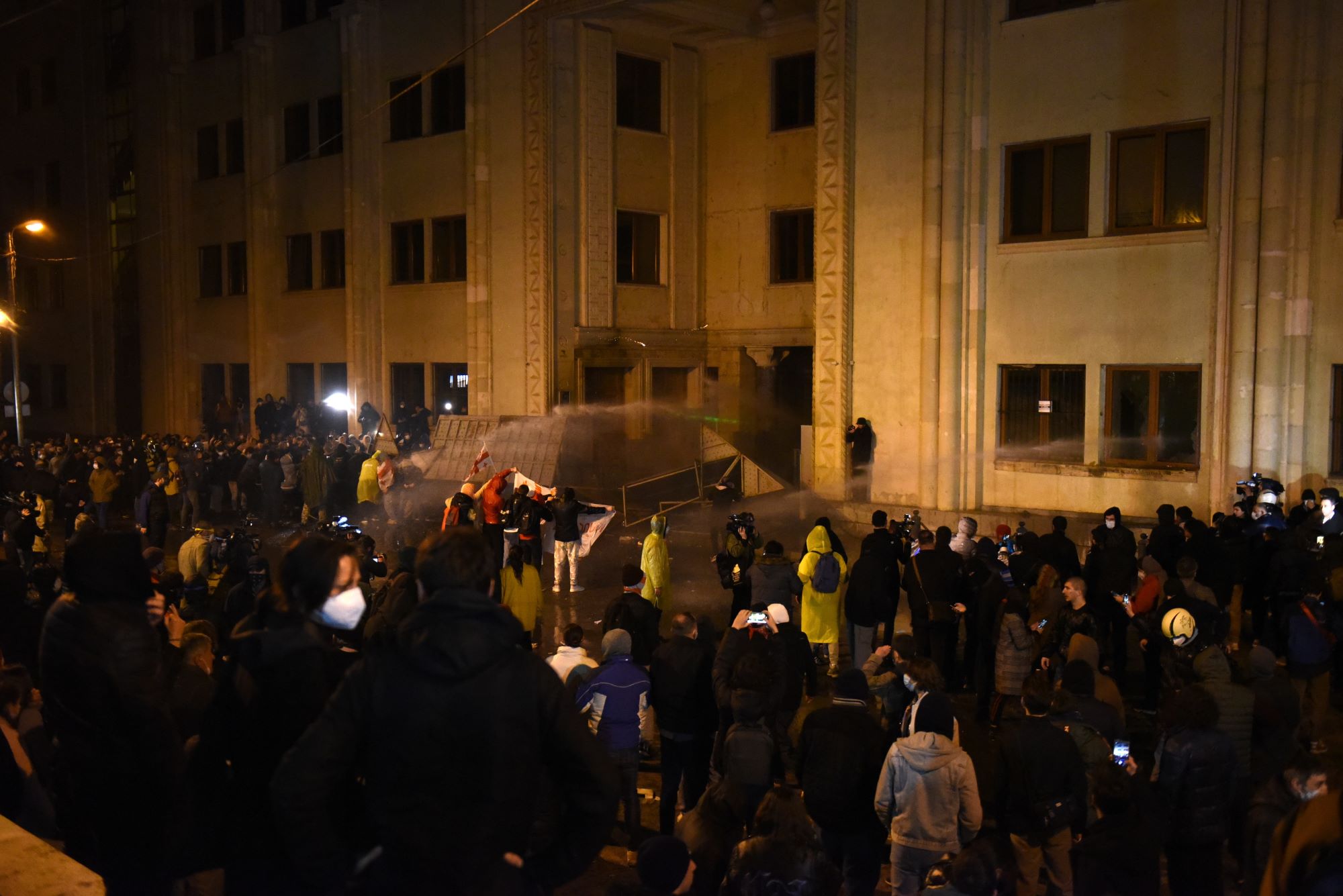
Some protesters used violence in response to the police’s use of force, including throwing stones and on several occasions, Molotov cocktails, at police. Several cars believed to belong to the police or security services were also overturned.
However, the majority of protesters remained peaceful throughout, continuing to return to face off with police.
A number of journalists were injured during the protests, with journalists from Publika and Netgazeti reporting that they had been beaten by police, the former while filming protesters being arrested on Rustaveli Avenue.
‘Today, for the first time, I experienced on my own that showing a document confirming journalism for an employee of the Interior Ministry is not a guarantee of security’, wrote Netgazeti‘s Buba Gvadzabia. ‘Special forces kicked me […] We shouted “We are the press!”, and I was holding a press card.’
‘Our kids did it!’
News that the draft law would be dropped has been hailed in Georgia and abroad.
The draft laws were widely condemned by a wide range of civil society groups, businesses, sports teams, and celebrities in Georgia. They also came under intense criticism internationally, from the EU, Western countries, international rights groups, and the UN.
The EU Delegation to Georgia welcomed the news that the ruling party was dropping their support for the bills, stating they ‘encourage all political leaders in Georgia to resume pro-EU reforms, in an inclusive and constructive way’.
The EU had made clear the law’s passage would be incompatible with Georgia’s wish to join the bloc. Public support for EU membership has for years remained high in Georgia.
The protest’s organisers published an official statement attributing the turnaround to ‘a lot of young people who are very smart [and] very brave’. They called for people to gather on Rustaveli Avenue from 19:00 today, to demand that both foreign agent laws be voted on and withdrawn, and that arrested protesters be released.
The announcement that the ruling party would drop the draft laws was also hailed by opposition politicians.
‘Our kids did it! Never in Russia!’ Khatia Dekanoidze, one of the leaders of the United National Movement (UNM), Georgia’s largest opposition party, wrote on Facebook.
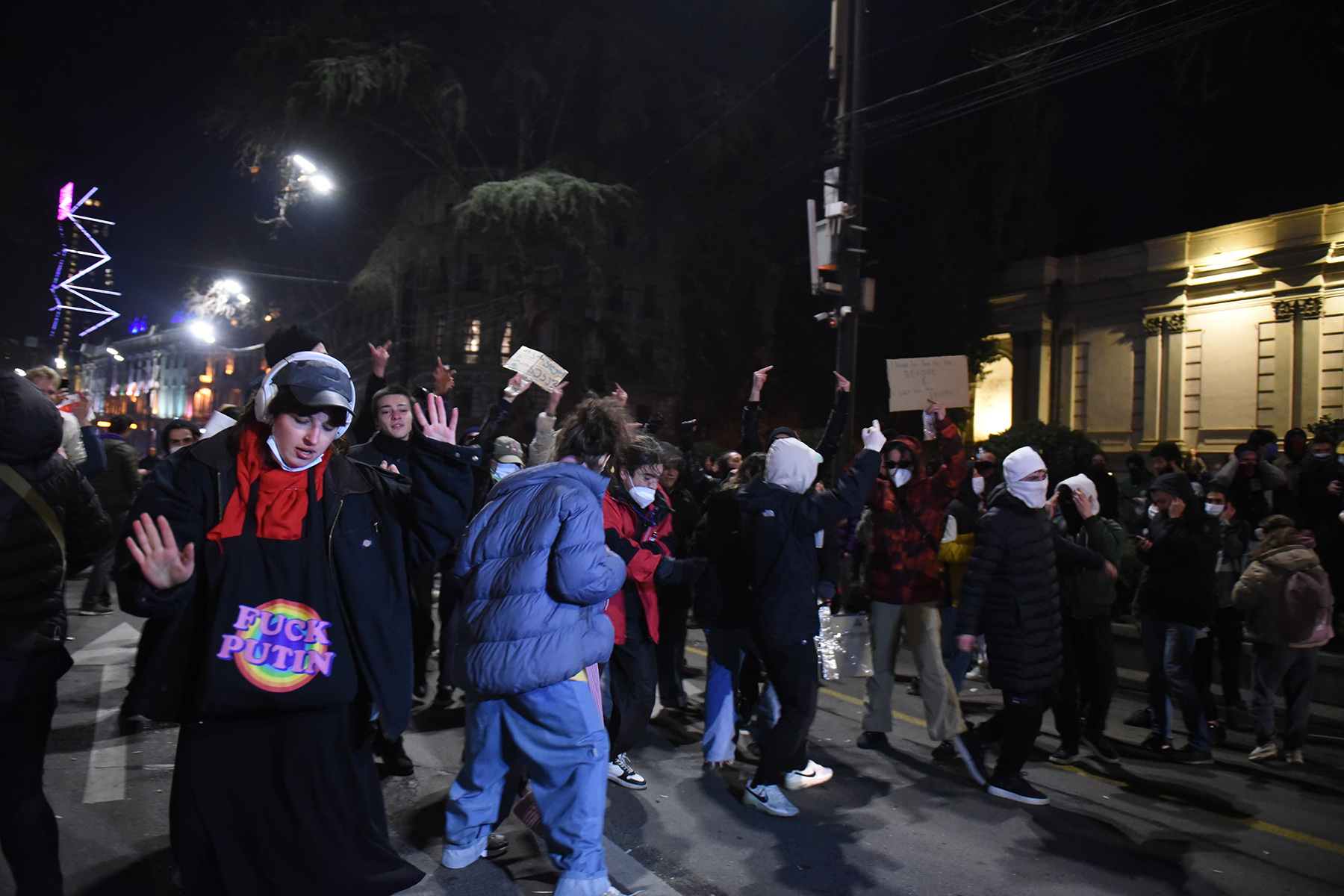
Khatuna Samnidze, the chair of the Republican party, told IPN ‘this is the result of people believing that fighting has meaning’.
‘We should thank each of these people [protesters] and our international partners who did not back down from reminding Georgian Dream every time that they are waiting for our country in the European family, and this would have been prevented by passing this draft law.’
Giorgi Gakharia, former prime minister and the leader of the opposition For Georgia party, thanked ‘GenZ’ and ‘Millennials’ for coming out to oppose the law.
‘Let’s start with thanks! Thanks to the young people! […] Thanks to all those people who are fighting for the European future of Georgia! Thank you to all our foreign friends, the European Union, for the unwavering support of the European choice of the Georgian people, of the USA!’, he wrote on Facebook.
‘This is not the final victory. This is the beginning of victory’, he said. ‘Georgia is Europe — it is necessary to get the status of candidate for the European Union — strength is only in unity!’
